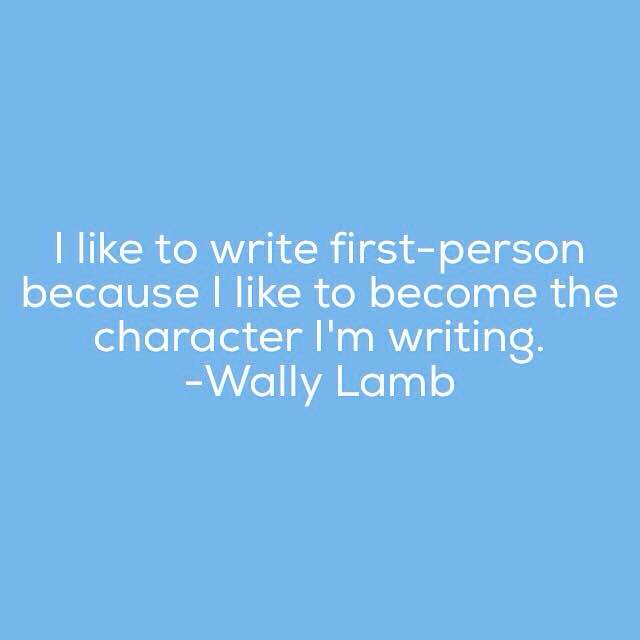On Monday I gave some tips for staying in third person with limited perspective. Today, I want to help you decide whether first person is right for you.
Staying it first person is a smidge easier than third. You’re obviously going to be limited to what your character can see, touch, smell, taste, hear, and suspect. You can’t jump heads unless you start a new chapter (or there is an obvious page break within the same chapter, but that’s still pretty jolting and not recommended). And if you do decide to have more than one character’s perspective, you need to decide early on in the novel.
I really don’t think there’s anything worse than getting part or all the way through your book when you realize it could have been written better in another point of view. So how can you avoid that? How do you know if first person is right for you? Here are some suggestions.
If the story cannot be told by anyone else.
This isn’t to say that a first person story is more personable than a third person story. It simply means that the introduction of a narrator, who can be seen as another character entirely, would stand in the way of your message. This is one of those questions that only you as the writer can answer. You have to be self-aware *gasp* enough to know how you can tell this story best.
If you want to keep your audience in the dark.
Of course any good story is going to have a certain amount of intrigue or surprises. But how much surprise do you want to have? And how do you want to deliver it? Yes, you can achieve something similar through a limited third person perspective, but if you want to truly get into your character’s head to deliver the impact to your reader, you may want to consider first person.
If something doesn’t feel write when you try to write any other way.
I promise this isn’t a cop out reason. Have you written a couple test chapters of your novel? If you haven’t go try it out now. Try it with a limited and omniscient third person narrator, and if that just doesn’t feel right, try first person. You’ll know it when you have it because your narrator will feel like an extension of you. You’re inhabiting another being, but there’s a bit of you in it, whether you like it or not (so hopefully it’s not a villain talking). Look at it from the reader’s perspective. Would they want to be in this character’s mind, or would it be better to have a buffer?

Overall, the best advice I can give is to remember that third person is going to have more freedom, whether they’re limited or omniscient, so decide early on if you need that freedom, or if the restrictions of first person will actually benefit you in the long run.
~Liz
Follow me @liz_tampa on Twitter and @wethewriters on Instagram.

